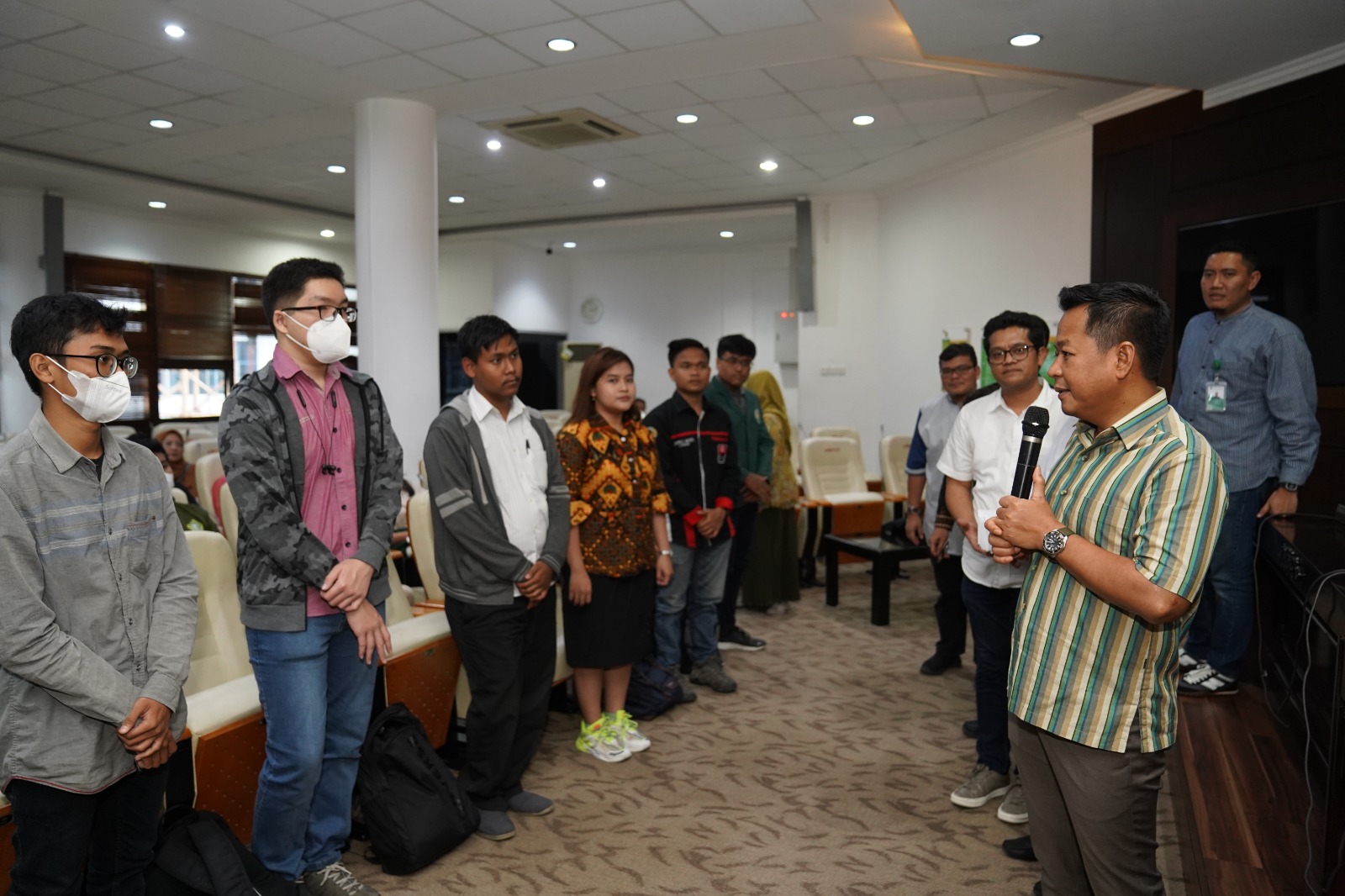Praktisi Mengajar
Praktisi Mengajar is part of the Kampus Merdeka program initiated by the Ministry of Education, Culture, Research, and Technology of the Republic of Indonesia in preparing higher education graduates to enter the world of work. Praktisi Mengajar provides a space for collaboration between lecturers and expert practitioners so an in-depth exchange of knowledge and expertise through course delivery, both offline and online, is established. Through this program, graduates are equipped with relevant knowledge and skills according to the needs and challenges in the world of work.

Benefits of Praktisi Mengajar
For Students
Gain practical learning experience that is actual, relevant, beneficial, and aligned with the needs of the world of work.
Receive mentorship from expert practitioners.
Build networks with expert practitioner instructors and become aware of their potential in the world of work.
Acquire both hard skills and soft skills as a reinforcement of students' capabilities.
Support the implementation of the MBKM program for students.
Strengthen and enhance students' competencies.
For Universities
Have the opportunity to collaborate with practitioners, both domestic and international, in the design and implementation of learning activities to enhance knowledge, skills, and competencies aligned with the needs of the world of work that overall support the implementation of the MBKM program at their respective universities.
Gain actualization and reference materials for learning that are directly applicable to the world of work.
Have the opportunity to apply the Three Pillars of Higher Education (Tri Dharma Perguruan Tinggi) when collaborating with practitioners from the world of work.
Enhance the university's reputation in the academic and general society.
Improve the positive assessment for BAN-PT and international accreditations.
Enhance the quality of graduates.
For Practitioners
Gain information about the potential of students in higher education institutions who possess skills relevant to the needs of the world of work.
Obtain information about potential students who can become valuable partners in the world of work.
Educate and filter outstanding human resources at an early stage to build a talent pool.
- Be part of driving the progress of education in Indonesia.
Terms of Praktisi Mengajar
Requirements for Practitioners
Have a minimum of 5 (five) years of experience in their field of knowledge/expertise, calculated cumulatively since graduating from at least a diploma 3 (D-3) or equivalent level of education.
Possess skills that can be taught or shared, demonstrated through a curriculum vitae (CV) and/or portfolio as follows:
Professional Practitioners: CV and Portfolio (in separate columns)
Entrepreneurial and Freelance Practitioners: CV and Company Profile or Portfolio (in separate columns)
Civil Servant Practitioners: CV and Appointment Letter
Not have, currently pursuing, or planning to obtain a National Lecturer Identification Number (NIDN), Special Lecturer Identification Number (NIDK), or Education Personnel Identification Number (NITK) during the Praktisi Mengajar program.
Not a lecturer or education personnel from any university within or outside the country.
Not currently receiving a scholarship from the Educational Fund Management Institution (LPDP).
Not involved in the management of MBKM.
The program is open to the following variety of professions:
Professionals (CEOs, Managers, Experts)
Entrepreneurs
Freelancers
Retired Seniors/Practitioners with active skills and experience
Civil Servants (Local Government, Police, Military, Government Ministries/Agencies)
Private sector employees
State-Owned Enterprise (BUMN) employees
Consultants, Lawyers, Notaries
Pharmacists
Researchers
Requirements for Universities
The Higher Education Institution must be under the supervision of the Ministry of Education, Culture, Research, and Technology (Kemendikbudristek) and registered in the Higher Education Database (PDDikti) system.
The Higher Education Institution and Study Programs must be accredited by the National Accreditation Agency for Higher Education (BAN-PT) or the Independent Accreditation Agency (LAM) in accordance with the provisions of the laws and regulations.
Willing to collaborate with practitioners from within and outside the country for the implementation of the Praktisi Mengajar program.
Willing to assign lecturers as the Higher Education Coordinator Institution and the Lecturer Coordinator to manage the implementation of the collaborative class program.
Willing to manage the program's finances in accordance with the provisions and issue a Letter of Absolute Responsibility (SPTJM).
Issue a decree regarding the program fees at the Higher Education Institution in accordance with the standard fees set by the Ministry of Education, Culture, Research, and Technology (Kemendikbudristek).
Willing to comply with all the provisions of the Praktisi Mengajar program.
Have an active status in the PDDikti system, both at the institutional and study program levels.
